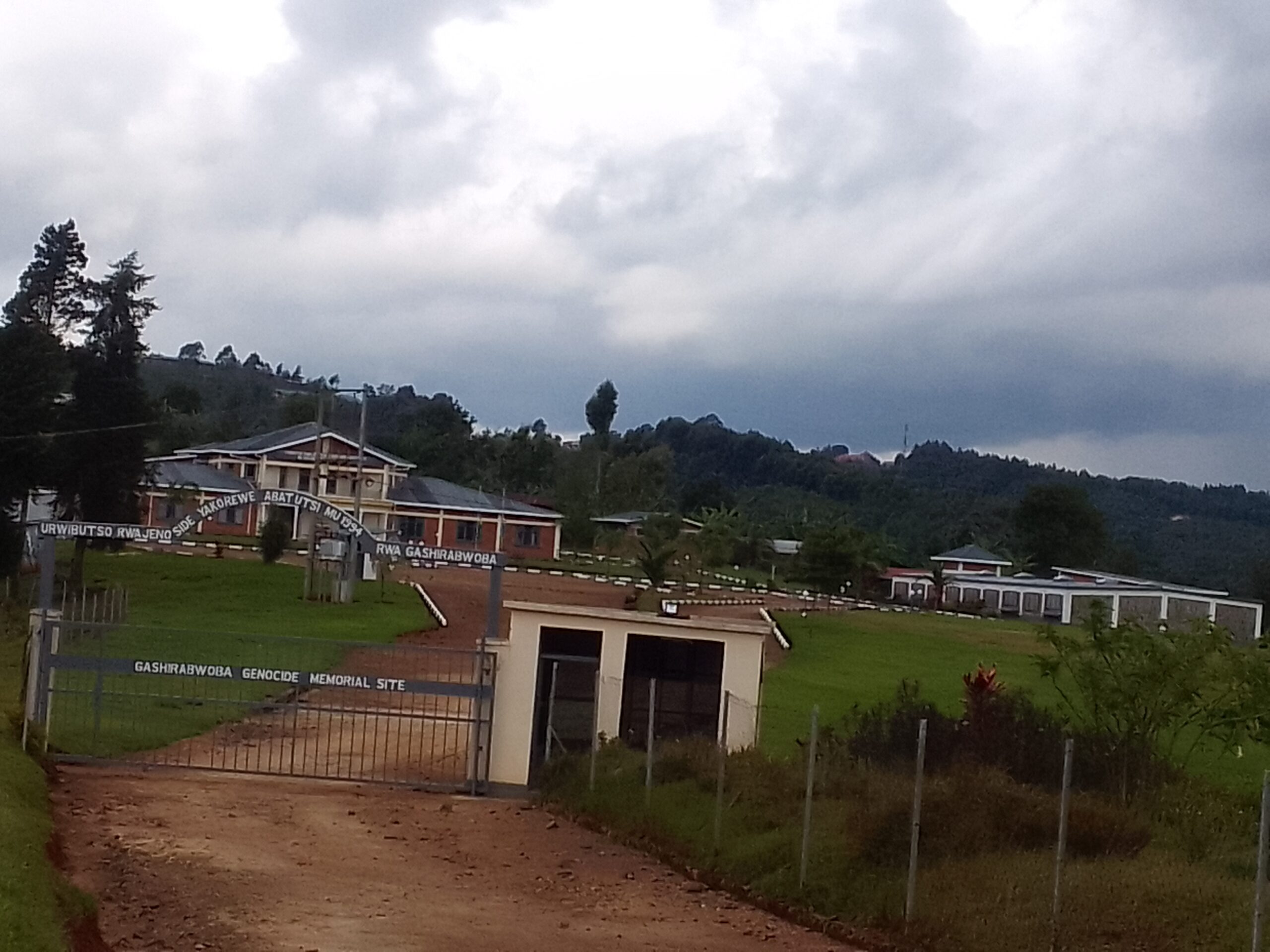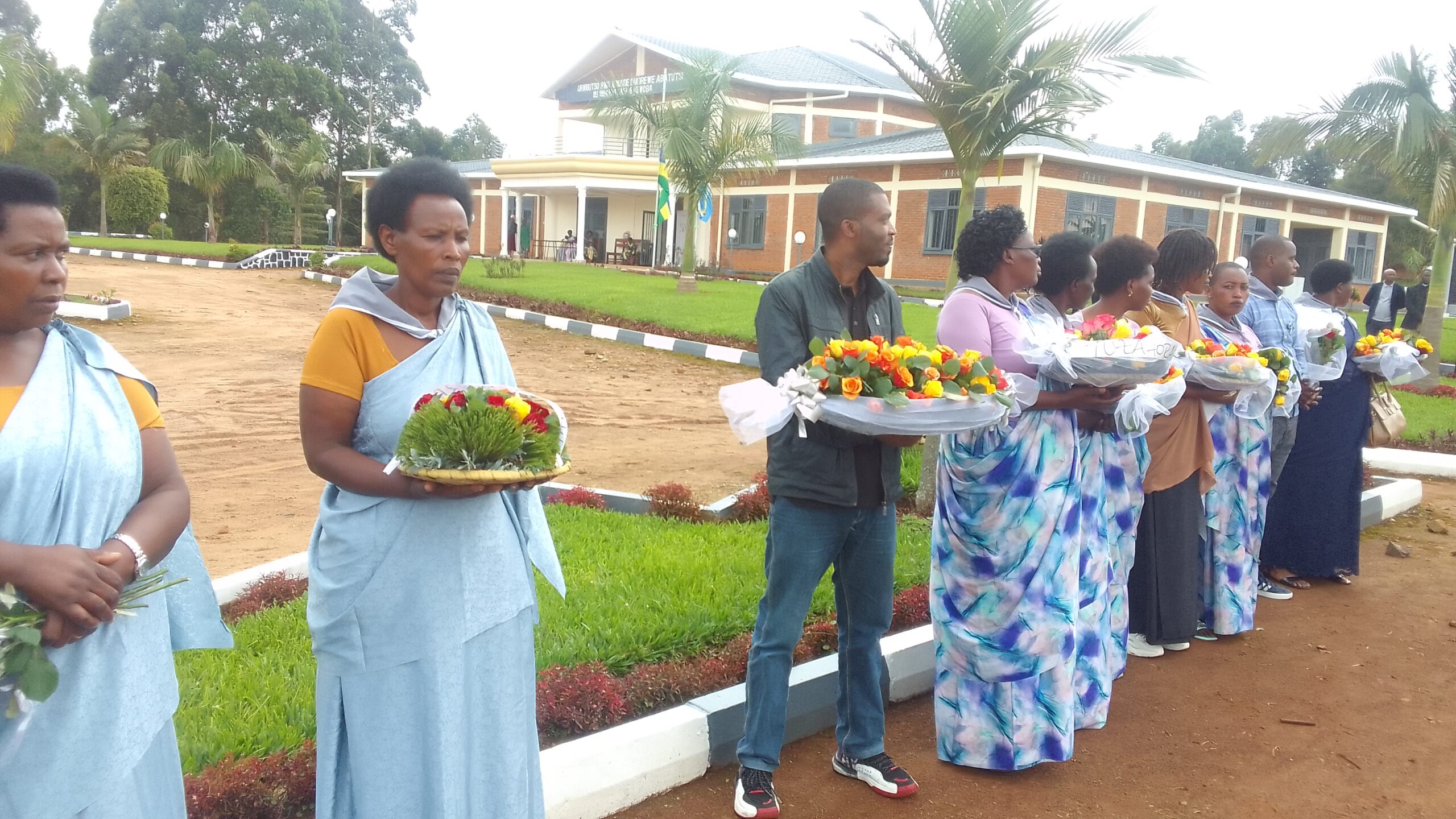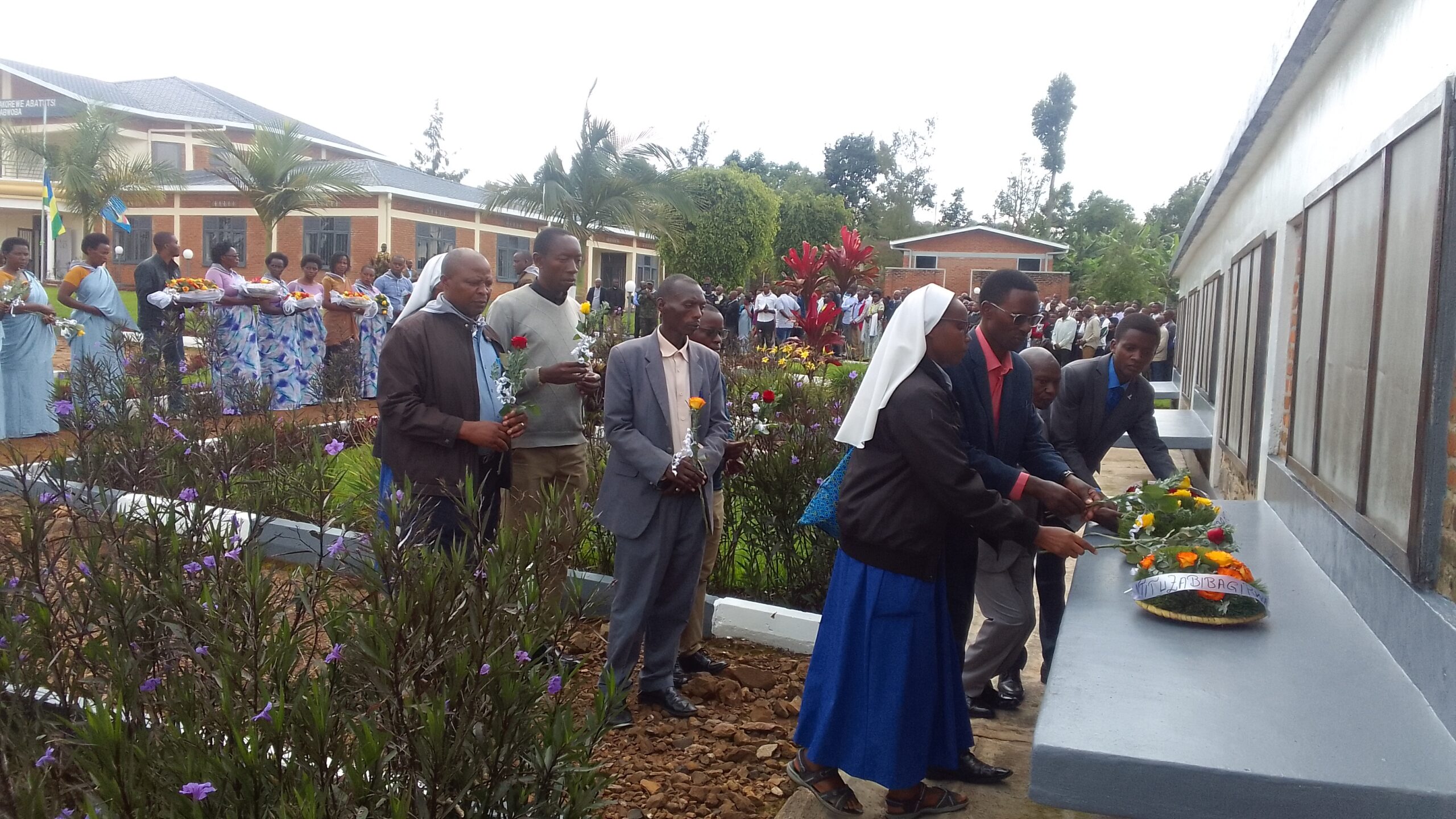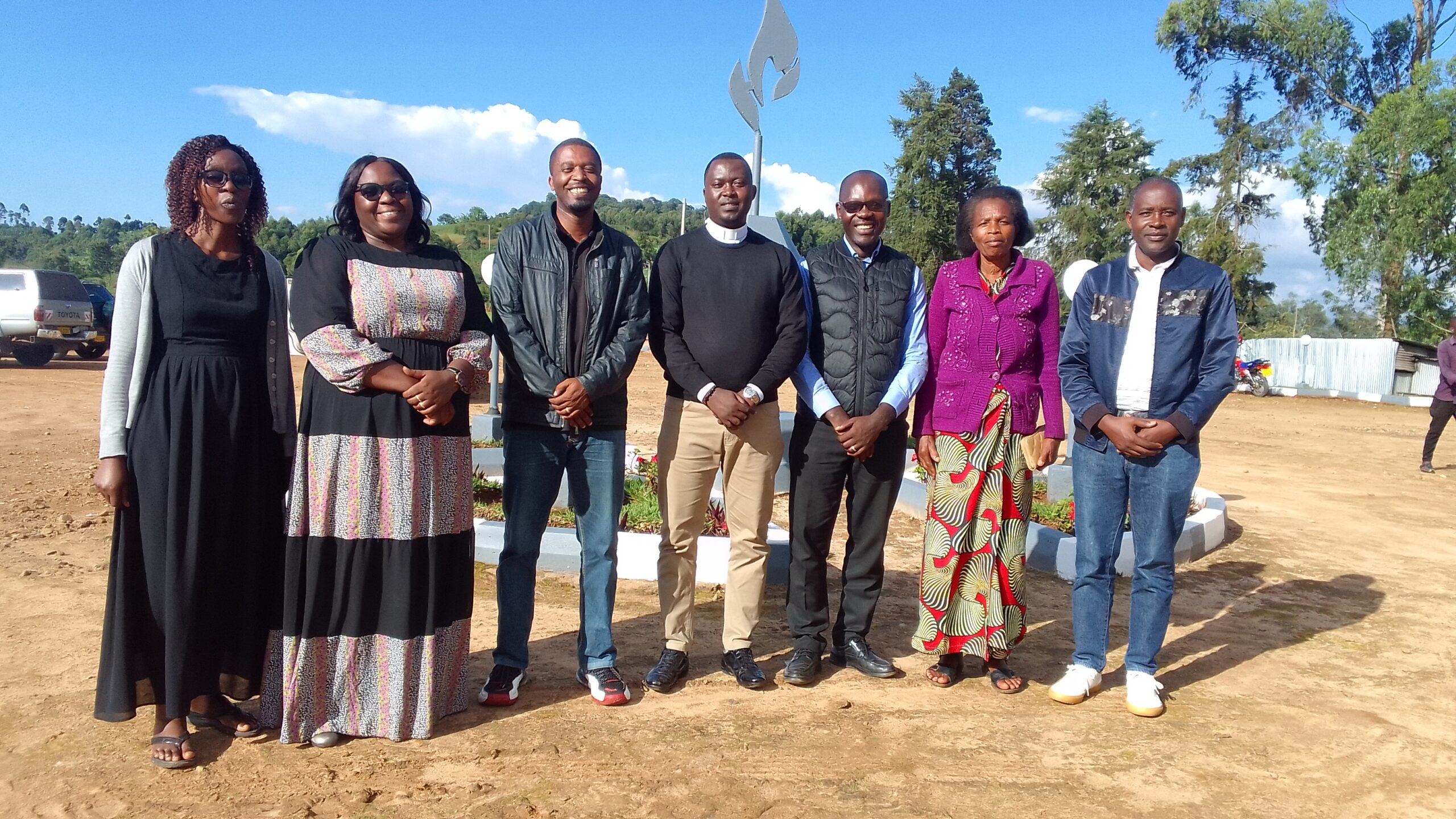Dealing with the past is one of the major programs that SOHEDEO-Amahoro Iwacu implements. So far, a lot has been done in areas of right to justice and right to reparation but there’s still a too long journey to go in what regards right to know and guarantee of non-recurrence. Many genocide survivors don’t up to now, know where bodies of their family members are thrown, genocide perpetrators are not willing to share information in this respect, unfortunately deepening grief, pain and trauma among genocide survivors. Genocide ideology is still observable, even among those who were born after the genocide. SOHEDEO-Amahoro Iwacu intervenes in preventing the escalation of transgenerational trauma and hate among youth from both families of genocide survivors and perpetrators. It’s in this perspective that jointly with the administration of NYABITEKERI sector in NYAMASHEKE District where SOHEDEO-Amahoro Iwacu operates, a commemoration event was organized on 11th April 2024, to honor 20,031 Tutsis killed during the genocide.
Please, follow this link to watch how commemoration week (07-13/04/2024) at national level has started:⇒ https://www.youtube.com/watch?v=8aHP1kyjW5Q
The event has happened at GASHIRABWOBA genocide memorial site, where bodies of genocide victims from different sites are burred. This is where 676 bodies of victims of genocide killed at MUYANGE Catholic church parish are burred too. They were killed on 11th April 1994, the same date we were honoring them. Youth and widows of genocide, beneficiaries of SOHEDEO-Amahoro Iwacu interventions, were facilitated to reach at the genocide commemoration site and their needs taken care of.

At the GASHIRABWOBA genocide memorial site, were many people who had joined us in commemorating and remembering our parents, siblings, friends and many other Tutsis killed at MUYANGE parish. Among them were priests, pastors, public servants at NYABITEKERI sector and many other local community members. At the outset of the event, the staff in charge of the management of the genocide site has explained us the parts of the memorial site before visiting each part of the memorial site and laying flowers on the tomb.


After visiting all the parts of the memorial site, participants were gathered in the conference room where different dignitaries have addressed speeches and genocide survivors sharing testimonies.

In&For Peace
